








VOLUME 62, N°3 LUGLIO-SETTEMBRE



EDITORIA






Centro Sperimentale per la Promozione della Salute e l’Educazione Sanitaria

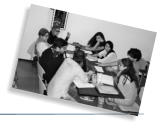
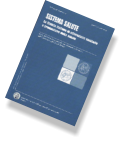

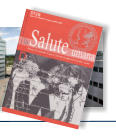
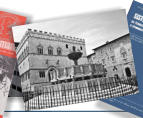
(Telefono: 075.585-7357/8036 - *Email: centro.cespes@unipg.it
Via del Giochetto, n°6 - 06126 - Perugia, Italia
Piazzale Severi,1 - 06132 -Perugia, Italia
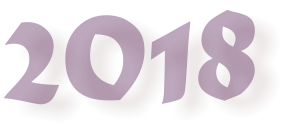
I Salotti del Benessere. Embodied education per la relazione d’aiuto
Embodied education for the helping relationship: I Salotti del Benessere
Sara Diamare1, Maria D’Ambrosio2, Enrico Guida3, Claudia Ruocco4, Marina Salerno5,
Gian- carlo Pocetta6
1 Dirigente Psicologa, Psicoterapeuta U.O.C. Controllo Qualità - ASL Napoli 1 Centro
2 Docente di Pedagogia generale e sociale - Università Suor Orsola Benincasa, Facoltà di
Scienze della Formazione
3 Direttore U.O.C. Controllo Qualità - ASL Napoli 1 Centro
4Tirocinante Psicologa U.O.C. Controllo Qualità - ASL Napoli 1 Centro
5 Dottoranda in Humaties and Technologies Università Suor Orsola Benincasa
6Docente di Igiene e Medicina Preventiva, Università di Perugia, Dipartimento di Medicina
Sperimentale, Centro Sperimentale per la Promozione della Salute e l’Educazione Sanitaria
Parole chiave: salutogenesi, caregivers, didattica embodied, empowerment psico-corporeo©,
osservazione del movimento, integrazione multidisciplinare, Salotti del Ben-Essere©, educazione
alla salute, valutazione stili di vita.
RIASSUNTO
Obiettivi: questo studio è finalizzato alla valutazione dell’efficacia del metodo di promozione della
salute i Salotti del Ben-Essere © (1) applicato in contesto didattico a n. 52 studenti del Corso di
Laurea in Scienze dell’Educazione (Università Suor Orsola Benincasa, Napoli) iscritti al
Laboratorio “La relazione con l’Altro”.
Metodi: il setting co-costruito ai fini di una valutazione quali-quantitativa partecipata, ha adottato
un modello integrato multidisciplinare di salutogenesi (2) denominato Salotti del Ben-Essere ©
implementato dall’UOC. Controllo Qualità della ASL Napoli1 Centro. Tale metodo si avvale di
focus group e circle time per la parte di elaborazione cognitiva sulla tematica affrontata e sul
vissuto emerso dai laboratori che coinvolgono i partecipanti nell’esperienza psicocorporea. I
laboratori impiegano tecniche del rilassamento muscolare progressivo Bioenergetica, EEICC © ,
DanzaMovimentoTerapia per motivare all’adozione di migliori stili di vita.
Risultati: dalla somministrazione dei test ex ante/post: Scheda Diade rev.3, Test SF12TM è
emerso che è migliorata la percezione della qualità della comunicazione non verbale e quella
della salute fisica.
Conclusioni: il metodo salutogenetico i Salotti del Ben-Essere © applicato in un contesto
educativo e didattico consente di osservare e migliorare la qualità della propria relazione con
l’altro e di sviluppare quell’empowerment psico-corporeo©1 che consente ad un futuro educatore
di migliorare le proprie competenze salutogeniche in una relazione pedagogica.
Keywords: salutogenesis, caregivers, embodied education, psycho-body empowerment, motion
observation, multidisciplinary integration, Well-Being’s Salon, health education, lifestyle
evaluation.
SUMMARY
Objective: the research is the result of the quali-quantitavive evaluation of the educational impact
of the Laboratory “Relationship with the Other”, carried out through the method “The Wellness
Salons “, aimed at studying the development of psycho-body empowerment and the improvement
of relational quality and addressed to 52 students of the Course Degree in Educational Sciences
of the Faculty of Education Sciences of the University of Suor Orsola Benincasa, and therefore
future educators.
Methods: the setting, which was co-built for a participatory assessment, adopted an integrated
multidisciplinary model of health promotion called “The Wellness Salons”, implemented by the
UOC. Quality Control of ASL Napoli1 Center and activated through salutogenetic techniques of
body expressiveness (DanceMovimentoTerapia, Bioenergetica, muscle relaxation, etc.) to
motivate the adoption of better lifestyles. Such a methodology allows the practitioner to help
themselves get involved, observe and improve the quality of their relationship with other people.
Results: the ex ante /ex post administration of two tests: Diade rev.3 test and SF12TM, showed
that the perception of the quality of non-verbal communication and physical health has improved.
Participants reached levels of deeply cognitive and emotional understanding of the others thanks
to interaction through movement and play; this has allowed the elements of personal stiffness and
hyper-control too often present in relationship with each other to crunch and considering possible
alternatives for building new and more functional meanings for sharing.
Conclusions: our experience has allowed co-construction of meaningful motives and motivations
to adopting healthier lifestyles aimed at psychological and physical well-being. The methodology
of the Lab “Relationship with the Other”, based on the method “The Wellness Salons”, can find
extensive applications in the field of health promotion and become a tool for future educators, to
prevent and deal with the discomfort associated with inadequate lifestyles and the co-construction
of multidisciplinary settings.
Autori per corrispondenza: sara.diamare@aslnapoli1centro.it



